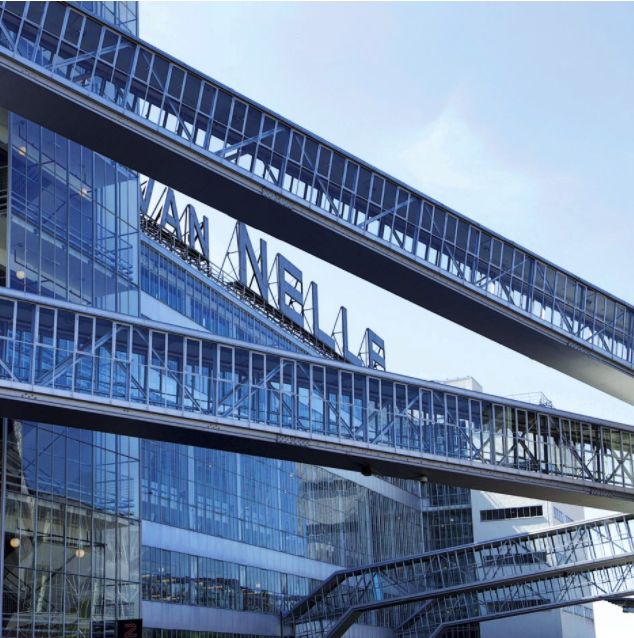During the Green Data Center Conference on October 14, a unique cooperation was announced between the UNESCO heritage site the ‘Van Nelle Fabriek’ in Rotterdam and the adjacent datacenter Smartdc. Smartdc, which houses, among other things, game servers for Ubisoft/i3D.net, has specific intentions to provide residual heat to the Van Nelle Fabriek. Because of this cooperation, less natural gas will be required to heat the world heritage site, which potentially will lead to a decrease of thousands of tons in CO2 emissions.
Technically and economically viable
This cooperation shows that local exchange of residual heat produced by data centers are both technically and economically viable. By providing residual heat, derived from sustainable power, Smartdc will also require less power for cooling which will lower the stress on the power grid.
Managing Director of the Dutch Data Center Association, Stijn Grove, considers this project a great example for circular business parks. “Data centers are capable of delivering large quantities of residual heat which enables a second use for power that is already sourced sustainably. The cooperation between Smartdc and the Van Nelle Fabriek shows that local matching is achievable. However, in order to use the full heat capacity of a data center like Smartdc, regional heat networks are required to transport heat to buildings in the vicinity”, says Grove.
Besides the project at the Van Nelle Fabriek area two other residual heat projects were announced today. Interxion, a Digital Realty company will be providing residual heat to Polderwarmte to be used on the Schiphol-Rijk business park. Additionally NorthC Datacenters will be participating in the largest residual heat project in The Netherlands so far to provide heat to 10.927 households and 367 companies in the Schiebroek Rotterdam Area.
Accelerate the energy transition with government support
The current challenges surrounding the need for sustainable power, highlight the importance of projects like these to succeed. These projects are low hanging fruit that can help solve the energy shortage and accelerate the energy transition. Currently, heat exchange programs are an arduous process and most of the projects that came to fruition did so thanks to personal perseverance and local cooperation.
Additionally, the fact that natural gas and residual heat prices are linked are deterring potential heat customers to switch to heat networks even when it’s the most sustainable option. It’s important that the government steps in and releases the linked pricing, it’s the only way to make the step from expensive fossil fuels to cheap and sustainable heat networks.
Clear direction and a friendlier investment climate for sustainable initiatives will instill trust for those who purchase residual heat that prices will remain stable and that the sustainable nature of this form of heating is recognized. This will motivate buyers and supplier to participate in greening the power grid. Therefore, the Dutch Data Center Association urges the government to provide clear vision and a plan of action regarding the deployment of circular heat through heat networks.
